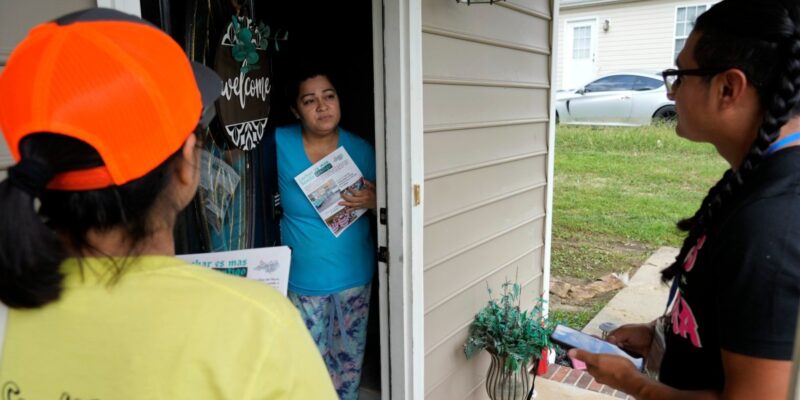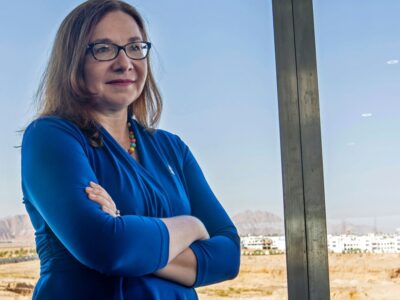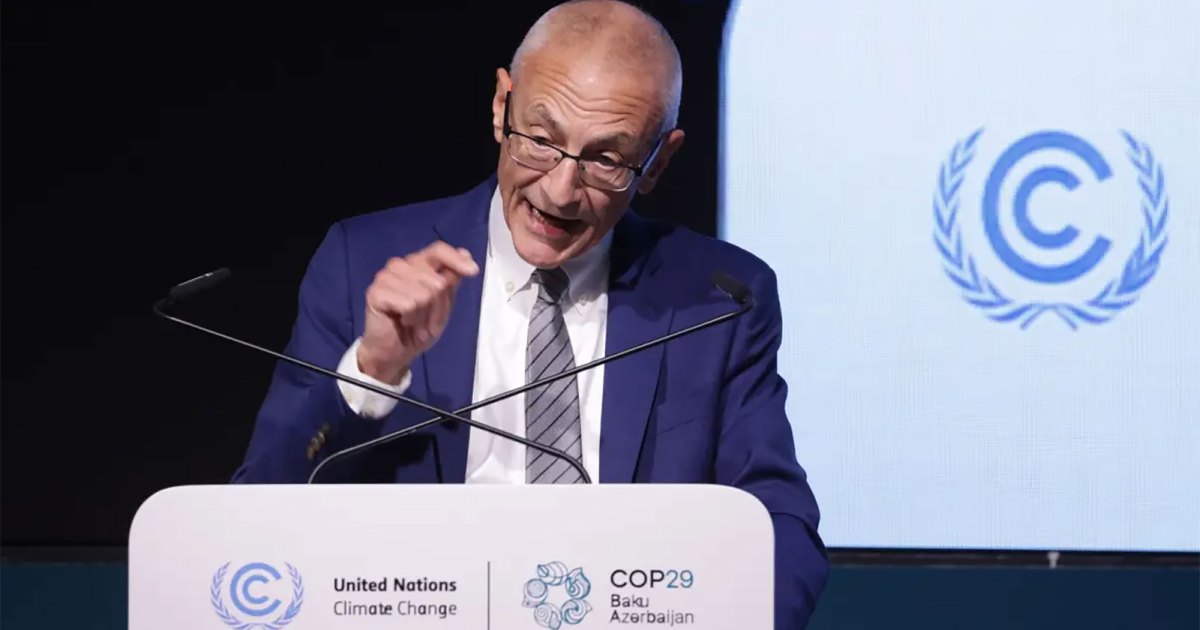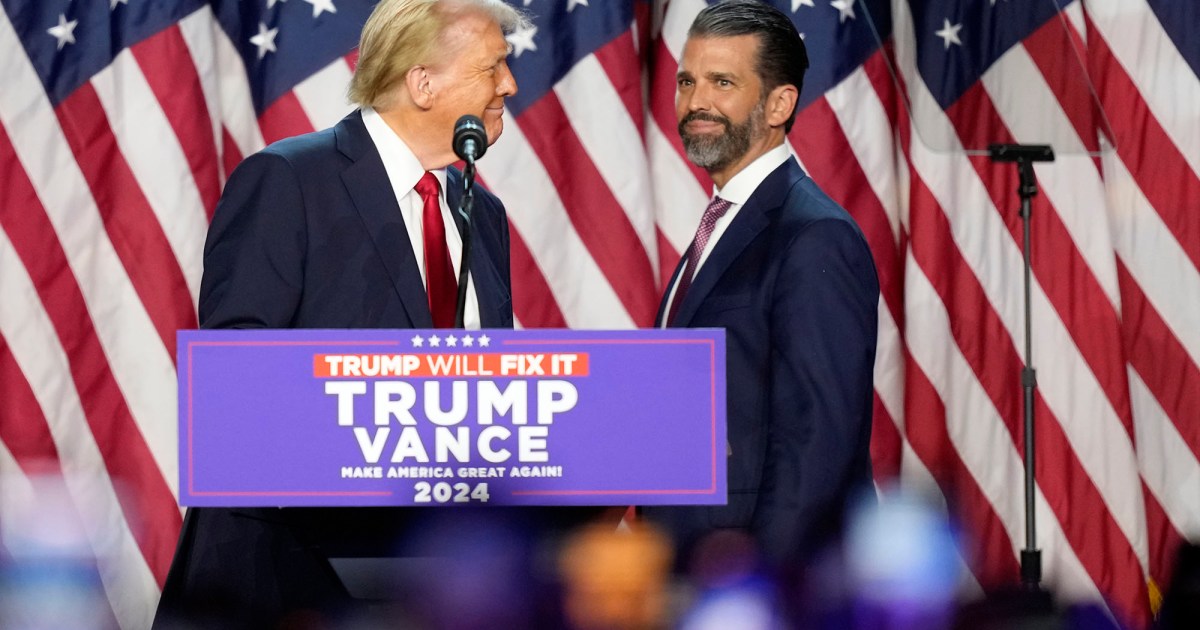
Claudia Garcia had never watched a televised presidential debate. On September 10, she tuned into ABC News’ showdown between former President Donald Trump and Vice President Kamala Harris and was stunned to hear the Republican nominee repeat lies about Haitian migrants eating pets in Springfield, Ohio. “I was like, what?” Garcia recalls. “What is he saying? We are not that [as] people. We don’t eat dogs. We don’t eat cats.”
An infrequent voter, Garcia will be going to the polls for only the third time in her life this November. Born in Riverside, California, but having spent most of her childhood in Mexico, she felt disconnected from politics. Her father told her voting did not make a difference. “If it’s not affecting me directly,” she thought, “it’s not affecting me.” But her husband, Salvador, a newly naturalized US citizen born in Mexico, felt otherwise. This year, he will be casting his first vote since pledging the Oath of Allegiance in February. Their two adult children will also be voting.
“Why would we support someone who sees us as trash?”
“I think a lot of these migrant and Hispanic homes,” Garcia says, “it’s not just they don’t want their kids to vote or they don’t want to vote themselves. I think we’re not informed…There’s a lot of education still to do in many of our communities.”
The Garcias live in Tulare in California’s Central Valley. Latinos account for 60 percent of eligible voters in the 22nd Congressional District. As my colleague Noah Lanard recently reported from the area, Democrats’ waning support in the region could determine the balance of power in Congress. In one of the closest House races of this election, Rudy Salas is facing a rematch against Republican incumbent Rep. David Valadao to become the first elected Latino congressman from the Central Valley. In 2022, Valadao, who is of Portuguese descent, beat Salas by three percentage points.
For Democrats to have a shot at picking up that seat, they need to not only hold on to Latino voters, but also hope for an end to—as one political strategist put it to NBC News—“anemically low” turnout. In the midterms, the 22nd Congressional District had the third lowest voter turnout of the House districts across the country. To do so, they could use the help of people like the Garcias: Latino voters who have not traditionally voted, or even first-time voters. In California and beyond, the path to controlling Congress and securing the White House may hinge on it.
The main issues on their mind? The cost of living and immigration. “I was an immigrant myself,” Salvador, who gained legal status as a result of Ronald Reagan’s amnesty for undocumented immigrants in the 1980s, says, “and I want more for the immigrant workers of this country.” He and his wife oppose Trump’s plans to mass deport millions of people from the United States and fear that more family separations are on the horizon if he returns to the Oval Office.
They also hope comedian Tony Hinchcliffe’s racist remarks about Latinos at a recent Trump rally where he called Puerto Rico a “floating island of garbage” can persuade voters to go for Democrats. “In his mind,” Garcia says of Trump, “we don’t matter. If you don’t look like him, then you’re you’re not worth it for him…Why would we support someone who sees us as trash?”
Immigration isn’t the single, or even the most, salient issue for Latino voters nationwide. But it intersects with broader concerns Latino communities have about the economy, jobs, and housing. In the battleground state of North Carolina, a pre-election poll by the civil rights and advocacy organization UnidosUS found that pocketbook issues rank as high priority for the state’s Latino voters. (Many also favor a path to citizenship for undocumented immigrants.) There are about 300,000 registered Latino voters in North Carolina.
Numbers showed that 19 percent of the more than 100,000 Latinos who had already voted in North Carolina were first-time voters and 39 percent were infrequent voters.
The daughter of two Mexican immigrants, Irene Godinez started Poder NC Action in 2020 to foster civic participation among the growing US-born Latino youth population in the state. That year, the organization sent out thousands of political mailers featuring the face of iconic Puerto Rican astrologer Walter Mercado as a strategy of tapping into culture to mobilize young people. In that election—which Trump carried by fewer than 75,o00 votes—first-time Latino voters comprised a large share of total voter turnout in North Carolina.
This year, Poder NC Action released a multi-part telenovela called “Alexia the Voter,” inspired by the Netflix show Jane the Virgin, to encourage young North Carolinians to vote. They have also hosted voter engagement events where people can learn about who’s on the ballot while getting their nails or hair done. “Our ultimate goal is to build independent political power,” Godinez, who served as Latino outreach director in North Carolina for Hillary Clinton’s campaign, says, “But while we do that, we are building a political home for progressive Latinos in the state.”
Prior to Election Day, she says, numbers showed that 19 percent of the more than 100,000 Latinos who had already voted in North Carolina were first-time voters and 39 percent were infrequent voters. “These are exactly the people that we’ve been targeting and activating because that’s where we see the opportunity to expand the electorate.”
Among the issues driving that electorate in the state are the economy, reproductive rights, and climate justice, especially in the aftermath of Hurricane Helene. The young Latino voters Poder NC Action courts also tend to bring up the war in Gaza as a point of concern. (The organization didn’t endorse President Joe Biden, but released a “defensive endorsement” of Kamala Harris because her victory would block a right-wing opponent.)
“The thing I have been hearing from voters that we’ve been talking to is how they haven’t felt seen by the parties whether they’re Democrats or Republicans,” Godinez says, “They don’t feel that either party is reaching out to them and trying to talk to them.” She believes the Democratic Party could have done more to appeal to Latinos in North Carolina, including sending bigger surrogate names to the state and crafting political mailers with original messages that weren’t just translated to Spanish from English.
“Even if we are 300,000 voters in the state right now,” Godinez adds, “we’re going to continue to increase at a faster pace than any other demographic because 50,000 Latinos will age into the electorate every single year. This could have been a really great year for them to lay the foundation of what it could look like to do Latino outreach in a very intentional way.”
In California, Garcia attributes her political awakening to her work, first as a canvasser and later as an organizer, with the group Poder Latinx to get people registered and out to vote. “I cannot be preaching and not doing,” she says. “I need to be a voice to those who don’t have one.”
She says she would like to see immigration reform that would benefit her neighbors and family members who “work out in the field, picking the food that we have on our table.” She also thinks of her nephews who are DACA recipients and whose lawful presence and ability to work and study in the country are in jeopardy. “It hits home,” Garcia says, adding: “Immigration is what motivates me and scares me, and that’s why I’m going to make sure that my ballot gets in the mail today.”
















